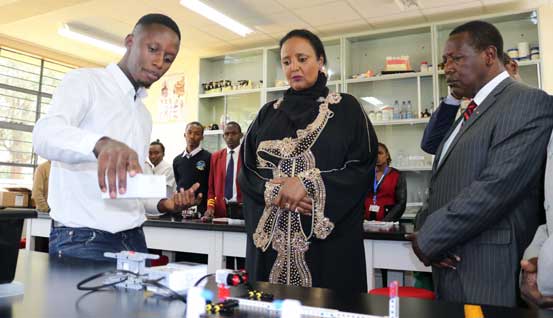
Education Cabinet Secretary Dr Amina Mohamed has affirmed the government’s commitment to promote innovativeness, inventiveness, creativity, and technology transfer culture in schools as demanded by the new curriculum.
She said the need to entrench science, technology and innovation into the national production system and related purposes was highlighted in the Constitution of Kenya, 2010, the Kenya Vision 2030, the National Education Sector Plan (NESP) 2014-2018, the Sessional Paper No. 2 of 2016, the Basic Education Act 2013, Science, Technology and Innovation Act, 2013.